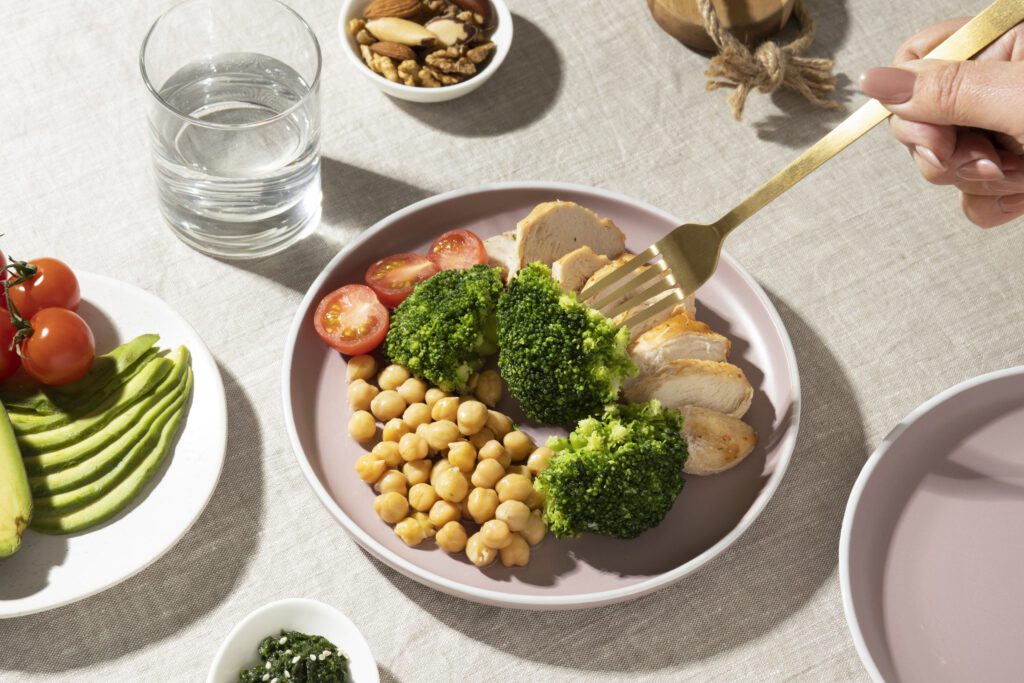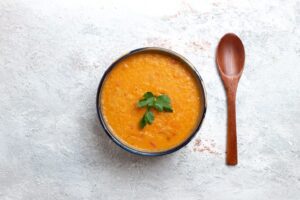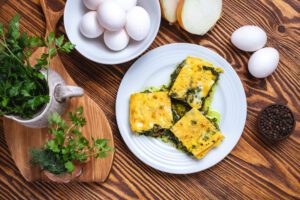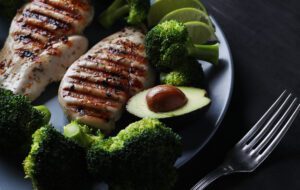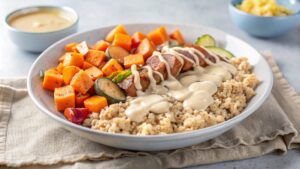A new life starts upon the journey after cancer survival. This phase is one of recovery and healing, where a healthy lifestyle, including a well-planned cancer survivors diet, becomes paramount. Cancer survivors need to focus on their health targets post-treatment, as keeping a balanced diet is essential for recovery. “Meal planning cancer survivors” defines a process that is beneficial not just for nutrition but also for emotional and physical well-being.
We will understand how meal planning and a thoughtful cancer survivors diet can be helpful, which foods need to be included and avoided, and how it can facilitate a healthy lifestyle transition..
Table of Contents
Benefits of Meal Planning for Cancer Survivors
Meal planning tailored to a cancer survivors diet offers numerous benefits:
- Nutritional Replenishment: After cancer treatment, the body becomes very weak, and the need for nutrients increases. This need can be fulfilled efficiently through meal planning.
- Weight Management: After treatment, many survivors face the issue of weight gain or loss. Maintaining an ideal weight is achievable with a structured cancer survivors diet.
- Strengthening the Immune System: Healthy meals make a strong immune system, which helps in recovery and reduces the risk of infections.
- Preventing Cancer Recurrence: Certain foods in a cancer survivors diet can help reduce the risk of cancer recurrence alongside a balanced diet.
How to plan the meal for Cancer Survivors
1. Understand a Balanced Diet
After cancer, your body demands extra care. A balanced diet means:
- Proteins: Necessary to strengthen the immune system.
- Carbohydrates: For energy.
- Fats: Include healthy fats like nuts and seeds.
- Vitamins and Minerals: You will get it from Fruits and green vegetables.
Example Meal:
- Breakfast: Oats with almond milk, blueberries and chia seeds.
- Lunch: Grilled chicken, quinoa and steamed broccoli.
- Dinner: Lentil soup and multigrain bread.
2. Include Anti-Inflammatory Foods
Anti-inflammatory foods are beneficial for cancer survivors. These foods reduce inflammation in your body and help in a better healing process.
Recommended Anti-Inflammatory Foods:
- Turmeric
- Ginger
- Leafy greens like spinach
- Berries (blueberries, strawberries)
Foods to Avoid:
- Processed sugar
- Fried foods
- Red meat
3. Pay attention to portion control
A good cancer survivors diet also involves portion control to avoid overeating or under-eating, as metabolism changes post-treatment.
Pro Tip: Divide the plate into 3 parts:
- 50% vegetables
- 25% protein
- 25% whole grains
4. Don’t forget hydration
Hydration is a critical part of a cancer survivors diet, as water helps flush toxins and combats fatigue. Drink 8-10 glasses of water daily. Herbal teas like green tea can also be included.
Stats: According to a report by Cancer.net, dehydration increases fatigue in 60% of cancer survivors.
Foods to Include in Meal Planning
Choosing healthy foods is critical for cancer survivors. Make sure to include these foods in the diet:
- Fresh Fruits and Vegetables: Antioxidant-rich options like berries, spinach and broccoli.
- Whole Grains: Fiber-rich foods that improve digestion.
- Lean Proteins: Chicken, fish, tofu and legumes.
- Healthy Fats: Olive oil, flaxseeds, and walnuts.
- Probiotic Foods: Curd, kombucha, and fermented foods are good for gut health.
Foods to Avoid or Limit
Certain foods can hinder recovery and should be limited or avoided in a cancer survivors diet, such as:
- Processed foods like chips and packaged snacks.
- Excessive sugar and salt, are harmful to overall health.
- Red and processed meats like sausages and bacon.
- Strictly limit alcohol.
Common Challenges in Meal Planning for Cancer Survivors
After cancer, meal planning is not easy. But if you understand the challenges early, it is easy to find solutions.
Challenge 1: Loss of Appetite
Solution: Plan small, nutrient-dense meals like smoothies or protein shakes.
Challenge 2: Food Sensitivity
Solution: Maintain a food diary and note which foods suit you.
Challenge 3: Time Constraints
Solution: Prep meals and keep healthy snacks handy like roasted chickpeas or mixed nuts.
Popular Diet Plans for Cancer Survivors
There are different diet plans available to suit your needs. Let’s explore some popular diets that are effective for cancer survivors.
1. Mediterranean Diet: High in fresh veggies, olive oil, and whole grains, making it a strong foundation for a cancer survivors diet.
- High in olive oil, nuts, fresh veggies, and whole grains.
- Beneficial for heart and brain health.
2. Plant-Based Diet: Focuses on fruits, vegetables, lentils, and soy products, ideal for low-fat, high-fiber meals.
- Focus on fruits, vegetables, lentils, and soy products.
- Ideal for low-fat and high-fiber.
3. Ketogenic Diet: May play a role in managing cancer growth, though it’s essential to consult a doctor before including this in a cancer survivors diet.
- Low-carb and high-fat diet.
- According to research, may starve cancer cells.
Sample Meal Plan for a Week

Breakfast:
- Oats with berries and nuts.
- Multigrain toast with avocado spread.
Lunch:
- Grilled chicken salad with quinoa.
- Spinach dal with brown rice.
Snacks:
- Mixed nuts and yogurt with fruits.
Dinner:
- Baked salmon with steamed vegetables.
- Vegetable soup with whole grain bread.
Sample Recipes for Cancer Survivors
1. Protein-Packed Smoothie
- Ingredients: Banana, spinach, almond milk, protein powder.
- Instructions: Blend all ingredients and serve fresh.
2. Quinoa Salad
- Ingredients: Quinoa, cherry tomatoes, cucumber, olive oil, lemon.
- Instructions: Mix and serve chilled.
3. Turmeric Lentil Soup
- Ingredients: Lentils, turmeric, ginger, garlic, onion.
- Instructions: Slow cook and serve hot.
Superfoods for Cancer Survivors
Superfoods that can be included in the diet of cancer survivors are highly recommended.
Top 10 Superfoods:
- Spinach – Rich in iron and vitamin K.
- Blueberries – Packed with antioxidants.
- Broccoli – Cancer-fighting compounds.
- Quinoa – Protein-rich grain.
- Salmon – Source of omega-3 fatty acids.
- Almonds – Healthy fats and fiber.
- Green tea – Detoxifying properties.
- Flax seeds – Rich in lignans.
- Turmeric – Anti-inflammatory agent.
- Sweet potatoes – Rich in beta-carotene.
Tips for Maintaining a Healthy Lifestyle Alongside Meal Planning
- Exercise: Walk at least 30 minutes every day.
- Stress Management: Invest time in meditation and hobbies.
- Sleep: Take 7-8 hours of quality sleep.
- Regular Check-Ups: Don’t miss doctors’ appointments.
Emotional and Psychological Impact of Healthy Eating
Healthy eating improves not just physical but also emotional well-being. A balanced diet reduces stress and promotes positivity.
Conclusion
For cancer survivors, meal planning is a crucial first step toward living a longer, healthier life. You become mentally and physically stronger as a result. Your health goals can be greatly helped by balance and consistency.
FAQs
What is the best meal plan for cancer survivors?
Balanced meals with fresh fruits, vegetables, lean proteins, or healthy fats are best.
How can meal planning help prevent cancer recurrence?
Anti-inflammatory or antioxidant-rich foods may help cancer cells grow and become stronger.
Are there specific superfoods for cancer survivors?
Yes, berries, turmeric, flax seeds, or green tea are considered superfoods.
Can cancer survivors follow vegetarian or vegan diets?
Of course! Make sure you get an adequate amount of protein or vitamins.
How to manage appetite changes during recovery?
Small, frequent meals

